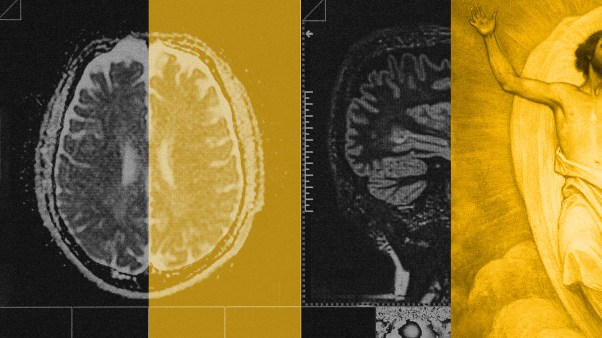Carmen Renee Berry wants to help those who, like her, once dismissed the church in cynicsm, but are now reconsidering it in their search for spiritual community. In The Unauthorized Guide to Choosing a Church (Brazos, 2003), she offers an easy-to-use, sometimes irreverent, hitchhiker’s guide to the mottled landscape of American Christianity. She examines some 30 denominations, describing in simple terms each tradition’s heritage and habits so that the curious can “sort through the liturgy, lingo, and lunacy” of choosing a church.
When you were distanced from the church, what prompted your return?
A good friend committed suicide. Though he attended church, he had grown cynical. I shared his attitude, but his death moved me from feeling cool and clever in my cynicism to admitting I have failings. I didn’t want to be spiritually isolated like my friend.
Over several months I purposely developed relationships with people of faith. A phrase in my mind changed me: “You’ve been living in doubt and visiting your faith; it’s time to live in your faith and visit your doubts.”
You wrote that you felt compelled back to “spiritual community.” What’s the difference between that and “church”?
A spiritual community is a place where fallible people find relationships that are accepting and encourage them to grow. Not all churches do that. But many churches, through small groups, ministry teams, recovery groups, and so on, do contain these spiritual communities.
I was active in a church of 2,000, but only because I found spiritual community in a smaller subgroup. I was on a team that ministered during our Sunday night contemporary service. We arrived early, set up, prayed with the band members, and afterwards prayed with attenders. By working on a common goal, we built transparent, accountable, and encouraging bonds.
How can a pastor encourage the growth of these spiritual communities?
A church’s response to failure is key. When someone makes a mistake, is there freaking out, a firing, or a flogging? On the other hand, does the church hold those who fail accountable to make amends and grow?
One pastor I knew made an off-hand joke that put down his elder board. It was a mistake. But during the following week, he made amends with the board. The next Sunday, he made a public apology and announced his error and his reconciliation with the elders. He modeled for the church how to deal with mistakes—not by glossing them over, nor through rejection, but by reconciliation and growth.
What’s the main thing community-seekers are looking for?
Three things:
- Acceptance. I don’t want to be excluded because I’m not at the same place in my life’s journey as you are.
- Willingness to get to know me, because I have needs and hurts that have brought me here.
- A place where I can work with a circle of friends toward growing and serving.
But the sequence is important. They’re looking for a church that will care about (in this order) “where I am, what I need, and how I can contribute.”
Copyright © 2003 by the author or Christianity Today/Leadership Journal. Click here for reprint information on Leadership Journal.








